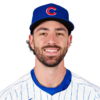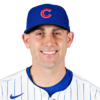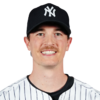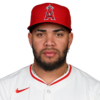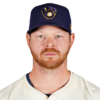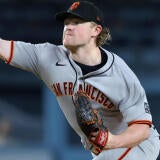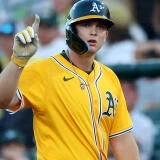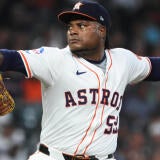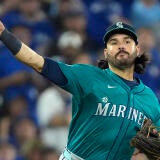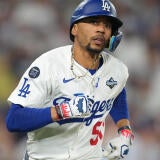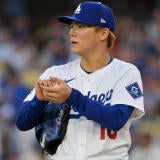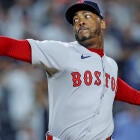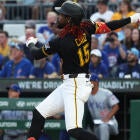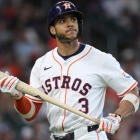Fantasy Baseball: Dansby Swanson headlines list of 14 delayed breakouts
Potential may not adhere to a schedule, but it never dies. Scott White looks at 14 players who may finally be making good on theirs.
For more Fantasy baseball insights, and to keep up with all the latest news, roster trends, and more throughout the season, subscribe to Fantasy Baseball Today now on iTunes, Stitcher or Spotify. You can find us on YouTube now, with full episodes and clips available every Monday through Friday.
There was a time not too long ago when not much was expected of rookies. They'd try to keep their heads above water for a couple years, taking their lumps before hopefully making the necessary adjustments to break out.
But by about the end of the steroids era, the aging curve began to change. Players, particularly those of high pedigree, would arrive more prepared and come closer to meeting full extent of their potential right away. We can see that in the average production of rookies over the last 20 years:
It hasn't been the worst development for Fantasy Baseball. Every promotion now is like a celebration, a chance to cash in on a lottery ticket and reverse the fortunes of a miserable season. But it has made for a possibly unfair sink-or-swim standard. Merely keeping one's head above water is now a sign of a lost cause.
And there are strategic advantages to that line of thinking. Just ask the guy who invested in Byron Buxton the past three years. But it goes against two of my core principles regarding player development:
- Small changes often yield big results.
- Potential never dies.
Sometimes all it takes is a different coach making a different observation about hand placement or pitch selection for that misplaced talent to click. Or maybe just a new opportunity. Certainly, the league is littered with that sort of player, too. J.D. Martinez, Tommy Pham and Aaron Hicks all come to mind, not to mention German Marquez, Max Muncy and Mike Foltynewicz from just last year. Shoot, Trevor Bauer. Gerrit Cole. We could name examples all day.
So it stands to reason there will be more, perhaps even from a crop of players you weren't considering on Draft Day.
Why not Dansby Swanson? He was the top overall pick in the 2015 draft and for a time considered the biggest coup of the Braves' rebuild. He arrived early, claimed the starting shortstop job quickly and ... settled in as a .230 hitter with disappointing power.
Early returns this year are promising, though. They're also easy enough to dismiss as fluke, especially when you remember he got off to hot start last year, but given the work he put in with Chipper Jones this spring, there's greater hope for sustainability this time around.
Now obviously, every organization brings in past standouts to work with its current players, and rarely does it yield anything concrete, but Kevin Seitzer, the Braves' actual hitting coach, described Jones' tutelage of Swanson as "beautiful" and something that "set the table for me ... just to keep it going." You can read all about it in David O'Brien's piece for The Athletic, but the gist is this: lay off the outside slider and let the ball get deeper in the zone.
They're changes aimed at making him more of a "Derek Jeter-like hitter" who will "play pepper with the right-center-field gap and the right fielder," which sounds like a lofty goal but is a comparison scouts were making when Swanson was first rising the ranks. They're also changes that should yield a better batted-ball profile, and so far, Swanson's strikeout rate is down, his line-drive is way up, his hard-hit rate is way up and he's getting more hits up the middle.
Different coach, different observation.
Yes, it's a microscopic sample size, and it wouldn't take much for those ratios to regress to their norms. But given Swanson's pedigree and the fact it's playing out in exactly the way Jones described, I'm intrigued.
"Intrigued."
Get used to seeing that word. Because these players are little more than speculative pickups at this early point in the season (tiny sample size and all), my interest level varies, ranging from "curious" to "intrigued" to "enamored."
Base your roster moves accordingly.
Who he was: The catcher who averaged as many Head-to-Head points per games as a 33-homer Gary Sanchez in his 53 starts two years ago and was looking like a candidate to overtake Yasmani Grandal last spring.
What he's doing: Back to full health and with Grandal out of the picture, Austin Barnes has more than twice as many walks as strikeouts and enough extra-base hits between spring training and the regular season to believe he could be a top-12 option at a weak position even with only a 60 percent share of the workload.
Interest level: Enamored
Who he was: A deceptive lefty who never rated high on top prospect lists but fascinated Fantasy players with consistently low ERAs and plus control in the upper minors.
What he's doing: With a nod to Patrick Corbin, Matthew Boyd has taken to leading with his best pitch, the slider, over his fastball, and the results have been just as magical, placing him among the best of the best in swinging strike rate.
Interest level: Enamored
Who he was: The seventh overall pick in the 2012 draft and prize of the long-forgotten deal that sent Justin Upton to the Padres, Max Fried has been held back by Tommy John surgery, inconsistent results and a pitching-rich system.
What he's doing: He followed six one-hit innings against the Cubs with another six strong at Colorado. He still hasjust two pitches and an underwhelming whiff rate, but it's been enough to have secured him the fifth starter spot for now.
Interest level: Curious
Who he was: A corner infielder who showed a good hit tool in the minors and had some early success in the majors before possibly becoming too power-focused.
What he's doing: Ryon Healy already has more than half as many doubles as last year, eliminating unnecessary movement from his swing and making a concerted effort to line the ball the other way.
Interest level: Intrigued
Who he was: A top-100 prospect renowned mostly for his patient approach and bat-on-ball skills in the minors but who many scouts thought would develop more power in time.
What he's doing: Max Kepler made exactly the sort of changes last year that we like to see in the fly-ball era, upping both his launch angle and barrel rate — all while improving his strikeout and walk rates. It didn't work out for him then, but he has so far maintained those changes this year.
Interest level: Curious
Who he was: An unheralded prospect who came crashing back to earth as a sophomore last year after a rookie season fueled by an outlier BABIP and home run-to-fly ball rate.
What he's doing: Trey Mancini has improved his strikeout rate and greatly improved his fly ball rate, which gives him a better chance of returning to his rookie-year production, if not exceeding it.
Interested level: Intrigued
Who he was: A former first-round pick who made five consecutive appearances in the Baseball America top 100 and was the big piece acquired alongside Tyler Glasnow in the Chris Archer deal last year.
What he's doing: Though used as a platoon player in the early going, Austin Meadows has so far demonstrated the ideal batted-ball profile, making hard contact to all fields with high line drive and fly ball rates.
Interest level: Intrigued
Who he was: An elite prospect who showed plus power, speed and on-base skills in the minors and was the main reason the Red Sox were able to snag Chris Sale from the White Sox
What he's doing: An exorbitant strikeout rate has prevented Yoan Moncada from meeting his lofty potential so far in the majors, but his quality-of-contact numbers still forecast greatness if he can get that strikeout rate closer to 25 percent, which is exactly what he has done so far (beginning in spring training).
Interest level: Enamored
Who he was: An exceptional strike-thrower who dominated the upper minors but was a victim of overcrowding and role uncertainty with the Astros.
What he's doing: As he grew more comfortable in the starting role last year, Joe Musgrove began to make better use of his secondary arsenal, combining an improved swinging strike with the efficiency to pitch deep into games. His first start this year was more of the same.
Interest level: Enamored
Who he was: A former top-100 prospect (albeit on the fringes) who has already established a strong hitting profile at the major-league level, offering a low strikeout rate and high line drive rate without the sort of fly ball rate that would limit power growth.
What he's doing: Thanks in part to hitting for cycle on April 5, Jorge Polanco already has three doubles, three triples and two homers, which may be an indication he's ready to take the next step power-wise at age 25.
Interest level: Curious
Who he was: A toolsy prospect who seemed to capitalize on those tools with a 30-homer, 15-steal season for the Brewers two years ago but struggled to make contact and elevate the ball last year, quickly losing his grip on the starting job.
What he's doing: More contact and an increased launch angle have led led to a massive resurgence for Domingo Santana. He has also been as aggressive on the bases as he has been patient at the plate, giving him the look of another Tommy Pham type.
Interest level: Enamored
Who he was: A longtime minor-league OPS standout who dominated the Cactus League last spring but whose limited defensive profile made him a difficult fit for a team with playoff aspirations.
What he's doing: The Mariners gave Daniel Vogelbach a crack when Edwin Encarnacion missed a couple days with a hand injury, and this time, he has made the most of it, showing the same power and on-base ability that came to define him in the minors. He has forced the Mariners to rotate some of their other top hitters out of the lineup just to keep his bat in.
Interest level: Intrigued
Who he was: A well-built right-hander who led the minors in strikeouts in 2016 and was seemingly on the fast track for the majors. He had a hard time securing a role between a hamstring injury and some surprising performance by less heralded pitchers.
What he's doing: The job is unquestionably Brandon Woodruff's now, and he has demonstrated the sort of diverse arsenal that, combined with his build, should allow him to pitch deep into games if he can be a little more efficient with it.
Interest level: Intrigued
What are the Fantasy baseball trade values for every MLB players in head-to-head and Rotisserie leagues? And which surprising infielder is now a top-10 value? Visit SportsLine now to see the Fantasy baseball trade evaluator and chart, all based off the projections of one of the top Fantasy baseball analysts in the nation.

